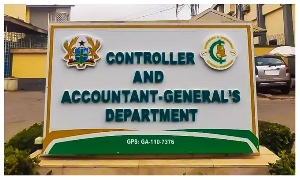Accra (Greater Accra), 28 Jan. '99 -
The government will pursue policies which encourage greater resource mobilisation by the banking and non-bank financial system. In addition to raising more funds from traditional sources, banks will be encouraged to explore new and innovative sources of funds, according to the First Medium-Term Development Plan (1997-2000) released in Accra on Tuesday. The document said government will encourage new local banks to be established, and foreign banks to set up branches in Ghana and improve upon efficiency and range of services. "This will assist in the process of making Accra a major regional financial centre in Africa. "Competition from an increased number of banks and expansion in the scope of banking services will promote greater efficiency in the banking sector. This will lead to a narrowing of the spread between borrowing and lending rates, thus encouraging savings and reducing business finance costs." The document noted that the private sector's access to bank finance has, generally, been constrained by government's fiscal and monetary policies. Heavy reliance on treasury bills and other government paper discouraged banking institutions from expanding loans to private enterprises, because the acquisition of treasury bills provides higher returns at a lower risk. "This tendency has been encouraged and reinforced by past experience of the banks in lending to private enterprises, which, too often, resulted in the accumulation of bad debts. "Restrictive monetary policies aimed at reducing excess liquidity by imposing tight constraints on bank lending in the form of high reserve ratios further discouraged bank lending, especially on a long-term basis." The document said banks have concentrated on providing finance for short-term activities, such as trading and working capital, and have shied away from long-term lending. "It is expected that as inflation rates are brought down, Bank of Ghana will ease the lending valve and actually take the lead in reducing interest rates in order to encourage lending to business." The document said the Central Bank's Export-Import Guarantee Scheme will continue to offer guarantees to enterprises, especially export-oriented companies, with respect to loans from the banks. The government will also encourage the establishment of a private guarantee agency, whose shares will be subscribed to by all banks. This company will be expected to provide credit guarantee, without the need for collateral, for viable projects undertaken by businesses, including small- and medium-scale enterprises, and for new entrants with good bankable projects. It said banks are expected to be more supportive of the export drive by providing adequate export finance to exporters. The document said government will promote the introduction of appropriate micro-business loan schemes, especially for rural women. It said an important component of the programme is to find effective ways to mobilise personal savings. Mobilisation of personal savings will be intensified by the banks through the offer of special rates for medium- and long-term deposits. The document noted that a major proportion of private investment of about 30 per cent is in the form of housing and house mortgage institutions, which are in their infancy and will be assisted to expand. It said the Ghana Stock Exchange will be encouraged to review conditions of listing in order to attract a wider range of businesses to seek quotations on the exchange.
General News of Thursday, 28 January 1999
Source: --












